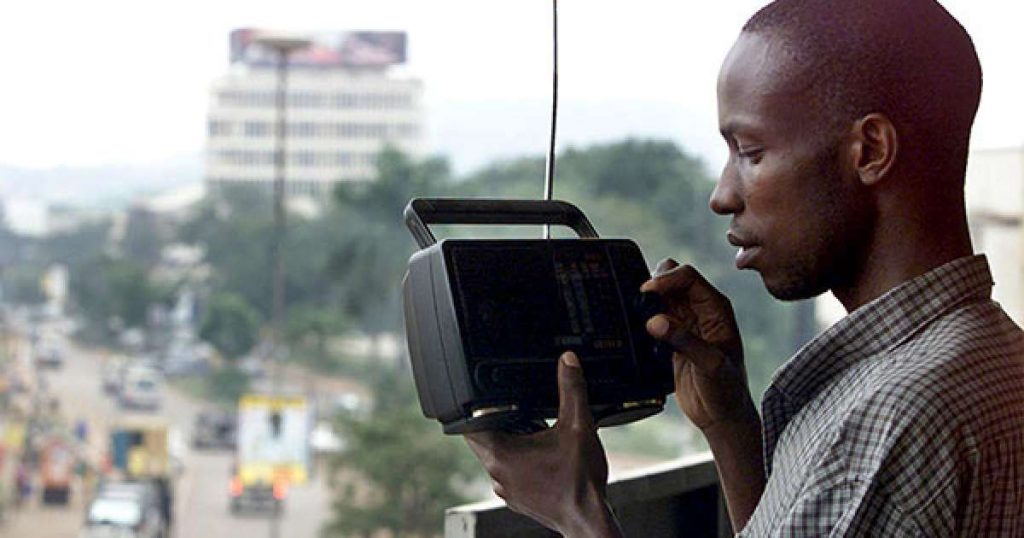The British Broadcasting Corporation (BBC) on Monday suggested reasons why Nigerians usually fall prey to fake news which is gaining grounds in African media circles.
It said due to the fact that they are concerned about “not falling behind on the news” and being informed, they easily believe fake news.
This was revealed in a research titled “BBC Beyond Fake News” published by the British medium.
The research specifically ought to understand how fake news is spreading within encrypted chat apps in India, Kenya and Nigeria.
“In Kenya and Nigeria, people are consuming mainstream media sources and known sources of fake news in equal amounts, even though the public’s desire to know the original source of messages is far greater than in India.
“In the African markets, people are very concerned about not falling behind on the news. Being seen as in the know has great social ‘cachet’. These factors all allow fake stories to slip through the cracks in private networks, even if users have the best intentions of verifying the truth,” the report noted.

Whatsapp Usage
In Nigeria, it said fake news stories relating to terrorism and the army are widely shared in Whatsapp conversation while in Kenya, fake news stories “largely reflect national anxieties and aspirations, with scams related to money and technology getting shared in Whatsapp conversations”.
Facebook Usage
The research states that in Nigeria and Kenya, Facebook users consume fake and legitimate news sources equally and are not necessarily concerned about which is which.
In India, the research shows that once again the case is different, with polarised groups of people on Facebook either engaging with legitimate news sources or recognised fake news sources, rarely both.
“Our research also showed that those who are most interested in the known sources of fake news are also more interested in politics and political parties,” the BBC said.
Generational Difference
Young people in Kenya and Nigeria are less focused on tribal and religious allegiances than the generations before them, and so are less likely to be driven by these identities when sharing fake news, the report explained.
‘Images Over Words’
The research suggests that a significant amount of fake stories being shared are not written articles, but images and memes.
The research explains in depth how the nature of social media platforms, combined with the challenge people face in coping with the amount of information online, leads to the spread of fake news being carried through visual media.
It said the report, comes as Facebook, Google and Twitter are set to talk about the impact of fake news on their platforms on Monday, at a conference held in Delhi, India
Project Thrust
The head, audience research, BBC World Service, Santanu Chakrabarti explained the structure and basis of the report
“This report combines in-depth qualitative and ethnographic techniques with digital network analysis and Big Data techniques to explore the fake news phenomenon in India, Kenya, and Nigeria from multiple angles.
“The project is the first conducted in the three countries and focuses on the question of why ordinary people share the fake news. At the heart of this research is the question of why ordinary people are sharing fake news, even while they claim to be worried about the way fake stories spread,” he said.
“This project is one of the first in these countries to properly understand fake news as a technologically driven social phenomenon.
“I hope these findings will add nuance and depth to the conversation around fake news, and that researchers, analysts, and journalists will use the findings as a spur for further investigation.”
Similarily, the Director, BBC World Service Group, Jamie Angus, said the initiative is a step in “BBC’s commitment to tackling the spread of disinformation”.
“Whilst most discussion in the media has focused on ‘fake news’ in the West, this piece of research gives strong evidence that a serious set of problems are emerging in the rest of the world where the idea of nation-building is trumping the truth when it comes to sharing stories on social media,” Mr Angus said.
“The BBC’s Beyond Fake News initiative marks a decisive step in our commitment to tackling the spread of disinformation, and this research provides invaluable insights to aid this work,” he added.

